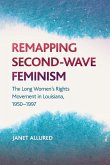One January day in 1923, a young boy came across the dead body of a twenty-year-old woman on a San Diego beach. When the police arrived on the scene, they found the woman's calling card, which read simply, "I am Fritzie Mann." Yet Fritzie's identity, as revealed in this compelling history, was anything but simple, and her death-eventually ruled a homicide-captured public attention for months. In Fritzie, historian Amy Absher reveals how broader cultural forces, including gendered violence, sexual liberation, and evolving urban conditions in the American West, shaped the course of Mann's life and contributed to her tragic death. Frieda "Fritizie" Mann had several identities during her brief life, and the mysterious circumstances of her death raise as many questions as they do answers. She was born in 1903 near the present border between Poland and Ukraine. She and her family were Jewish immigrants who traveled to San Diego to find security and prosperity. In the last year of her life, Mann became locally famous. She had reinvented herself as a flapper and "Oriental" dancer. She claimed to have friends in Hollywood and a movie contract. On the night of her murder, she said she was going to a party to meet her Hollywood friends; instead she traveled to an isolated roadside hotel where she met her death. An autopsy revealed that she was four and a half months pregnant. Absher guides the reader through the intricacies of this true crime story as it unfolded, from the initial flawed investigation to the sensationalized press coverage and the ultimate failure of the legal system to ensure justice on Mann's behalf. Like other "new women" of her era, Fritzie Mann adopted roles that promised liberation from the control of men. In the end, her life and early death suggest the opposite: she became the victim of a culture that consumed women even as it purported to celebrate them.
Hinweis: Dieser Artikel kann nur an eine deutsche Lieferadresse ausgeliefert werden.
Hinweis: Dieser Artikel kann nur an eine deutsche Lieferadresse ausgeliefert werden.









